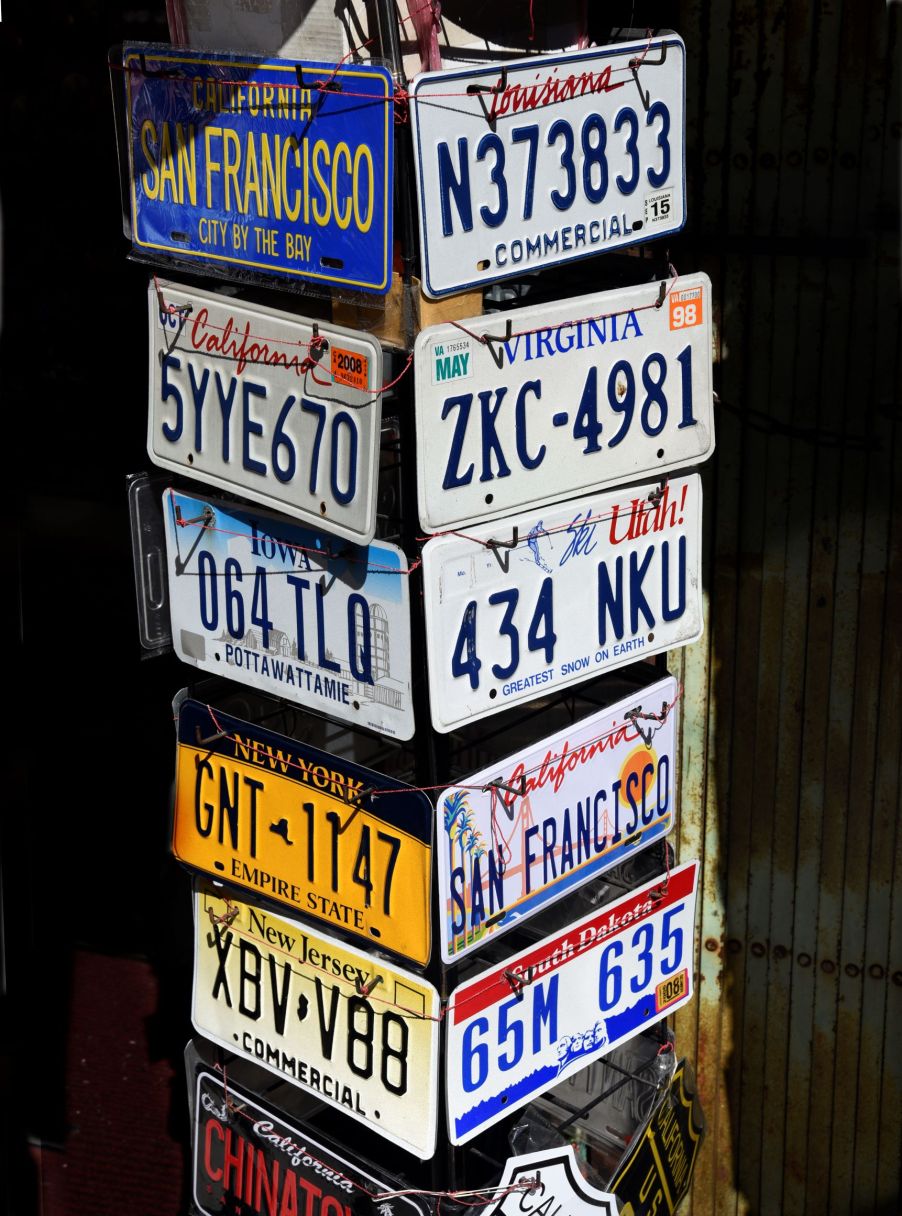
What Should You Do With Your License Plates When Selling Your Car?
Buying a car is tricky enough without involving the other side of car shopping: selling your old one. Whether you use Craigslist, an auction site like Bring a Trailer or Cars and Bids or trade it in at a dealer, there’s a lot of paperwork involved. But even when that’s all done, there’s still one thing left: dealing with your license plates. For some, that’s an afterthought. But if you’re not careful, those old plates could come back to haunt you.
What are you supposed to do with your license plates when you sell your car?

Each state has its own laws regarding license plate placement and contents. And it’s the same situation regarding what you can and should do with the plates once the car they were on is sold.
In some states, the seller retains the plates, Autoblog reports. But in others, they go with the car itself. For example, in Illinois, where I reside, the license plates stay with the car’s original owner, AAA reports. And the same goes for Michigan, where I used to live. However, in California, unless the license plates are personalized, they stay with the car, SellMax reports.
If you’re selling your car, these distinctions are vital to keep in mind, the Augusta Free Press explains. License plates are your vehicle’s ID and are linked to its title. And whoever is listed on that title is the legal owner, e.g. on the hook for any possible incidents, the Providence Journal explains. That’s why you need to be careful with how you handle the license plate transfer or retention.
Can you keep your old license plates and/or use them on your new car?

If you retain ownership of your old car’s license plates, you can simply dispose of them at your local DMV. There, they’ll either be recycled/destroyed or reissued to another vehicle, CarsDirect.com reports. However, if you want to keep your plates—for example, if they’re personalized—you can do so, YourMechanic reports.
The exact procedure varies slightly between states, but the overall process is fairly simple, ItStillRuns explains. Take your new vehicle’s title, the plates, as well as your old car’s title or a copy of it to the DMV. There you’ll fill out a form and likely pay a small fee. After that, your old license plates can be installed on your new car.
Of course, if your state laws state that the license plates stay with the car, then they’re out of your hands. But that doesn’t mean you can dawdle with transferring the title and reporting that transfer to the DMV.
If you’re not careful, you could end up with a massive headache
One of my close relatives is currently experiencing one of the problems that can arise from improper license plate handling.
Roughly a decade ago, they gave their sedan to another family member. Said family member moved around multiple times, before giving the sedan back to the original owner. However, in the meantime, the original license plates were misplaced—until they wound up on the back of someone’s pickup truck. A truck that went through a tollway without paying, so naturally, the tollway authorities traced the plate. And the last registered owner was my relative; so, now they’re stuck with the bill.
And this isn’t the only legal problem that can arise from license plates. Many owners of exotic cars register their rides in Montana to avoid paying certain taxes, even if they don’t live there, Autotrader reports. Which, despite looking legit on paper, is really illegal unless you actually live in Montana, Jalopnik explains.
So, in the interest of your own sanity, make sure you dispose of your license plates properly when you sell your car. Or, if that’s not an option, get all the legal paperwork filled out and sent in quickly.
Follow more updates from MotorBiscuit on our Facebook page.


